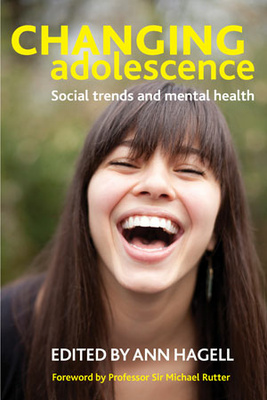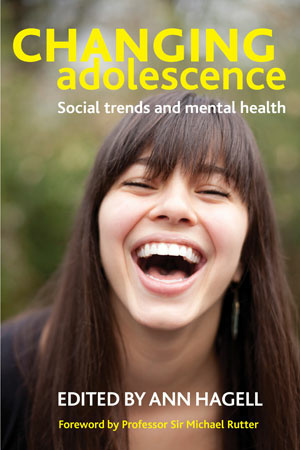Published
Mar 15, 2012Page count
256 pagesISBN
978-1447301035Dimensions
234 x 156 mmImprint
Policy PressPublished
Mar 15, 2012Page count
256 pagesISBN
978-1447301042Dimensions
234 x 156 mmImprint
Policy PressPublished
Mar 15, 2012Page count
256 pagesISBN
978-1447308195Imprint
Policy PressPublished
Mar 15, 2012Page count
256 pagesISBN
978-1447308201Imprint
Policy PressThe general well-being of British adolescents has been the topic of considerable debate in recent years, but too often this is based on myth rather than fact. Are today's young people more stressed, anxious, distressed or antisocial than they used to be? What does research evidence tell us about the adolescent experience today and how it has changed over time? And how do trends in adolescent well-being since the 1970s relate to changes in education, leisure, communities and family life in that time?
This unique volume brings together the main findings from the Nuffield Foundation's Changing Adolescence Programme and explores how social change may affect young people's behaviour, mental health and transitions toward adulthood. As well as critiquing research evidence, which will be of interest to a wide academic audience, the book will inform the wider debate on this subject among policy makers and service providers, voluntary organisations and campaign groups.
"This book should be read by anyone professionally involved in the mental health of young people. Its message should also be absorbed by those in a position to influence public opinion and social policy." Child and Adolescent Mental Health
"The authors use incredible depth and breadth of research in attempting to explain some of the underlying issues that could explain the problems facing British adolescents." Journal of Youth Adolescence
"Full of important new information about today's young people, and their parents, 'Changing adolescence' documents how the lives of adolescents have undergone enormous changes in recent history which are accelerating. This book provides a badly needed clear and exciting social science agenda to uncover the consequences of these remarkable changes." Terrie E Moffitt, Kings College London and Duke University
"Ann Hagell and her co-authors have performed an immensely valuable service in clearly delineating what we currently know, don't know and ought to know about adolescent life courses. We see here young people growing up both faster and more slowly, as well as creating and responding to a rapidly changing social, economic and cultural context. The book not only shows what a rich and nuanced world this is, but also how it can be subject to unhelpful and ill-informed stereotyping. The authors succeed in getting us beyond a familiar deficit model, but to a place where we can be cautiously optimistic about the second decade of life." Professor Sir David Watson, Principal, Green Templeton College Oxford
Dr Ann Hagell is a chartered psychologist with a longstanding interest in social policy and adolescent well-being. She has worked with several universities, think-tanks and funders over the last 25 years, and is committed to making research findings relevant and useful to policy and practice. She is editor of the Journal of Adolescence and was head of the Nuffield Foundation's Changing Adolescence Programme, on which this book is based.
Foreword by Professor Sir Michael Rutter; Introduction~ Ann Hagell; Time trends in young people's emotional and behavioural problems, 1975-2005 Stephan Collishaw; Stress and mental health in adolescence: interrelationship and time trends ~ Ann Hagell, Seija Sandberg and Robert MacDonald; Trends in time adolescent time use in the United Kingdom ~ Ann Hagell, Stephen Peck, Nicole Zarrett, J. Ignacio Giménez-Nadal and Jennifer Symonds; Trends in parenting: can they help explain time trends in problem behaviour? ~ Frances Gardner, Stephan Collishaw, Barbara Maughan, Jacqueline Scott, Karen Schepman and Ann Hagell; Educational changes and possible links with adolescent well-being: 1970s to 2000s Ann Hagell, John Gray, Maurice Galton and Colleen McLaughlin; Trends in adolescent substance use, and their implications for understanding trends in mental health ~ Ann Hagell, Judith Aldridge, Petra Meier, Tim Millar, Jennifer Symonds and Michael Donmall; Some thoughts on the broader context: neighbourhoods and peers ~ Ann Hagell, Sarah Curtis, Shari Daya, Yasmin Khatib, Rachel Pain, Catherine Rothon, Stephen Stansfeld and Sara Fuller; Reflections and implications ~ Ann Hagell and Sharon Witherspoon









